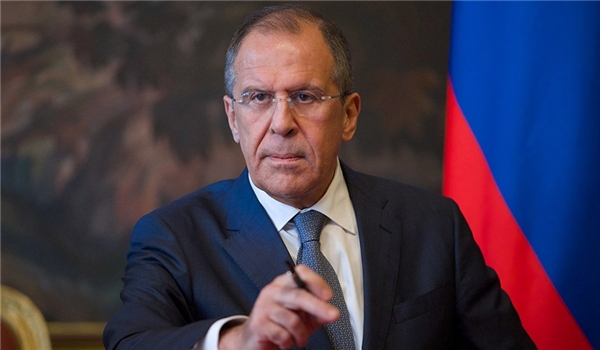
RNA - Lavrov made the remarks on Tuesday in response to a question on US President Donald Trump’s recent anti-Iran comments.
The resolution of problems in the Middle East and North Africa requires the participation of external actors that “influence the situation on the ground in one way or another. To a full extent, this also refers to Iran and to what has to be done to settle the Syrian crisis,” he said.
He also described the Islamic Republic as the “nucleus” of the International Syria Support Group (ISSG), a working group formed to find a diplomatic solution to the Syria crisis.
In a Sunday speech to Arab Muslim leaders in the Saudi capital, Riyadh, Trump singled out Iran as the world’s “biggest sponsor of terrorism” and urged its isolation, claiming that Iran’s role in Syria was among the “most tragic and destabilizing interventions.”
He made similar hostile remarks against Iran during his visit to the occupied territories on Monday.
Iranian Foreign Ministry Spokesman Bahram Qassemi slammed the US president’s remarks and said he “tried to encourage the countries of the region to purchase more [American] arms by spreading Iranophobia.”
Astana talks ‘based on principle of inclusiveness’
Elsewhere in his remarks, the top Russian diplomat referred to the intra-Syrian peace talks, which were brokered by Tehran, Moscow and Ankara in the Kazakh capital, Astana.
So far, four rounds of the negotiations have been held, with the latest round having produced a memorandum of understanding on de-escalation zones in Syria, sharply reducing fighting in the country.
At Damascus’ request, Iran and Russia have been lending military advisory support to the Syrian army in its efforts to combat Takfiri terrorists who are wreaking havoc in the Arab country since 2011. Moscow has also been providing Syrian troops with air power to boost their ground operations against terrorists.
“The Astana process is also based on the principle of inclusiveness, considering that Russia, Turkey and Iran have come up with an initiative of a direct inter-Syrian dialogue with the participation of the government and the armed opposition,” Lavrov said.
In the Astana discussions, Turkey acts as a representative of some Persian Gulf Arab states, including Saudi Arabia and Qatar, he added.
Mediated by Russia and Turkey with the support of Iran, a Syria-wide cessation of hostilities took effect on December 30, 2016. The following day, the United Nations Security Council unanimously adopted a resolution supporting efforts to end the Syria turmoil and jump-start peace negotiations.
Lavrov stressed that the UN approval of the Astana format and the Syria ceasefire “demonstrates quite vividly the attitude of the international community to this situation.”
847/940